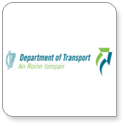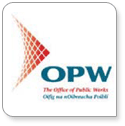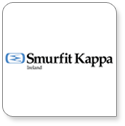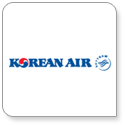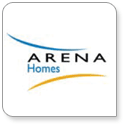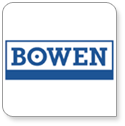- Pro-Active Tenant Management.
- Rent Collection.
- Insurance Administration.
- Tenant Liaison.
- Sinking Fund Administration.
- Management Company Structures.
- Planned Preventative Maintenance.
- Rent Review Strategies.
- Lease Administration.
- Pre-development Advice.
- Service Change Administration & Benchmarking.
- Bespoke Financial Reporting.
- Bulk Purchasing Power.
- Estate Management Consultancy.
Property Management Services
Facilities Management Services
- Building Fabric Maintenance.
- Mechanical & Electrical Maintenance.
- Planned Preventative Maintenance.
- Health & Safety Systems .
- Fire & Life Systems.
- Security & Reception Services.
- Cleaning Services.
- Financial Administration.
- Environmental Monitoring.
- Energy Audits And Management.
- Mail Room Services.
- Landscape Maintenance.
Each site has an appointed Safety Officer
The Safety Officer’s specific responsibilities are:
• To apply corporate policies on health, safety, and welfare.
• To co-ordinate and prioritise for action, any health, safety, and welfare issues raised by safety audits or by individual employees.
• To ensure that all systems of work are regularly reviewed from a health, safety, and welfare point of view.
• To ensure, in consultation with the General Managers and Heads of Function, that buildings equipment and facilities are maintained to high standards and are safe as reasonably practicable.
• To consult, where necessary, with individual employees on health, safety, and welfare issues affecting them and take appropriate action arising from the consultations.
• To ensure that all statutory and recommended safety inspections /certifications are recorded, e.g. for equipment such as fire extinguishers.
• To monitor health, safety, and welfare training needs and to advise the General Managers accordingly.
• To investigate and review accidents occurring on all or any premises.
• To liaise with regulatory bodies, e.g., Health and Safety Authority.
• To communicate with employees, contractors, and visitors, where appropriate, on health and safety issues.
Individual Employees
Individual employees are required to adhere to safe systems of work as outlined in this safety statement and must comply with the instructions provided by their managers and team leaders in relation to health, safety, and welfare.
Employees are required to co-operate with management on health, safety, and welfare issues and must bring any defects, in buildings, equipment, or systems of work, to the attention of their supervisor or manager without delay. A Facilities Helpdesk has been set up to enable employee’s email any items relating to health & safety.
Safe Pass
All Emex Facility Management Ltd staff are appropriately trained for all deployments.
The majority of training is carried out by our team of in- house training professionals:
- Mr Sean BradleyTraining Manager
- Mr Alan PengFirst Aid trainer
Our wealth of expertise allows us to deploy fully trained staff at short notice. The Emex group routinely run Safe Pass courses for both staff members. We encourage all our staff to undergo this Safe Pass course and support this both financially.
Health and Safety is vital to Emex Facility Management Ltd as all staff deserve to right to work in a safe environment.
Resources for HEALTH & SAFETY
Employee Training
Emex is committed to training employees for all the tasks they are required to do and this includes provision for health, safety, and welfare training where necessary.
Safety training commences at induction. New employees are given advice on Manual Handling, Electrical Hazards, Slips, Trips, and Falls etc. They are also advised of their duties under the 2005 Health & Safety Act.
Safety Audits
"The Safety Officer arranges to have safety audits carried out at least annually. These audits examine buildings, the use of buildings, and workplace equipment from a hazard analysis and risk assessment viewpoint."
The Safety Officer, in consultation with the General Managers, prioritises any action needed arising out of the findings of such safety audits.
Consultation
The company is committed to full and early consultation with employees on all health and safety matters including any alterations and changes which could potentially affect the health and safety of employees, visitors, or contractors using the premises.
The Safety Officer is available at all reasonable times to discuss and examine all health, safety, and welfare issues of concern to employees or contractors.
Safety Representative
The Safety Representative is John Ray. The company recognises his legal rights and is committed to co-operating with him to ensure that he can carry out any audits and investigations permitted under the Safety, Health and Welfare at Work Act, 2005.
Staff are encouraged to participate in the consultative process through direct contact with the Safety Representative. The effectiveness of the consultation arrangement will be reviewed from time to time.
Safety Committee
A Safety Committee has been formed and meets twice a year.
Some of the topics the safety committee may review are as follows:
• Current safety issues, including items outstanding from safety audits
• Accidents and accident statistics
• Training requirements
• Fire drills and evacuations
• New developments
• Complaints
Budgets
In arriving at annual budgets, the Safety Officer advises the General Managers of the resources necessary to support the safety arrangements detailed in this safety statement.
First Aid
It is company policy to ensure that there are adequate stocks of First Aid supplies on site at all times and an adequate number of certified First Aiders on site during normal business hours, as far as is reasonably practicable.
General Duties of Employees
SAFETY HEALTH AND WELFARE AT WORK ACT 2005.
It is the duty of every employee while at work:
• To take reasonable care for his/her own health, safety, and welfare and that of any other person who may be affected by his/her acts or omissions while at work.
• To co-operate with his/her employer and any other person to such an extent as will enable his/her employer and any other person to comply with any of the relevant statutory provisions.
• To use, in such manner so as to provide the protection intended, any suitable appliance, protective clothing, convenience, equipment or other means or thing provided (whether for his/her use alone or for use by him/her in common with others) for security his/her health, safety, and welfare while at work.
• To report to his/her employer or immediate supervisor, without unreasonable delay, any defects in plant, equipment, place of work, or systems of work, which might endanger health, safety, and welfare, of which he/she becomes aware.
• No person shall intentionally or recklessly interfere with or misuse any appliance, protective clothing, convenience, equipment or other means or thing provided in pursuance of any of the relevant statutory provisions or otherwise, for securing the health, safety, and welfare or persons arising ot of work activities.
The Organisation of Working Time Act, 1997:
Minimum safety and health requirements for organisation of Working Time.
The harmonisation of legislation concerning working hours, rest periods, holidays and overtime
Applies as set out in the Act
In Regulations made under the Act
Through legally binding Collective Agreements
The Act applies to most employees excepting:
- The Defence Forces and Garda Siochana
- Junior Hospital Doctors
- Transport Employees
- Those who Work at Sea
- Those who control their own working hours
- Family Employees working on farms/in private houses
The maximum weekly working week of 48 hours may be averaged as follows:
For employees generally – over 4 months
For employees in seasonal work, where there is a foreseeable surge in activity or involved in ensuring continuity of service or production – over 6 months
Collective Agreements approved by the Labour Court – over 12 months The 48 Hour Working Week:
Security and surveillance industry, continuous activity work such as hospitals or work that cannot be interrupted on technical grounds, and seasonal activities.
Exemptions provided for by way of a Collective Agreement that has been approved of by the Labour Court, a Registered Employment Agreement (REA) or an Employment Regulation Order, once the employees have the benefit of equivalent compensatory rest.

